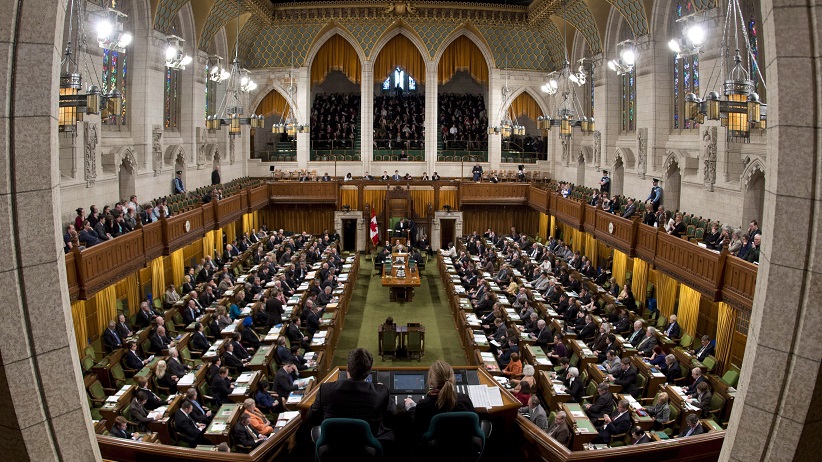Must-see QP: Only Alice Wong loves seniors
Your daily dose of political theatre.
Share

Maclean’s is your home for the daily political theatre that is question period. If you’ve never watched, check out our primer. Today, QP runs from 2:15 p.m. until just past 3. We livestream and liveblog all the action.
UPDATE: Follow along Tuesday night with our 2014 Parliamentarian of the Year Awards, where we honour the finest MPs in Ottawa, as chosen by their peers.
The must-see moment
Irene Mathyssen’s question started reasonably enough. The NDP’s longtime seniors critic recalled a new report from the College of Family Physicians of Canada. The CFPC, she said, was disappointed in a lack of federal leadership on homecare. Here, verbatim, are the organization’s latest recommendations to the government:
1. Set targets and implement strategies for measuring, monitoring, and reporting on progress with respect to
home care.2. Develop a national home care strategy in partnership with provinces and territories (see the Canadian Home Care
Association’s Harmonized Principles of Home Care).3. Support the vital role of family caregivers by:
• Safeguarding their health and wellness
• Minimizing their financial burden
• Providing information and resources.4. Ensure programs provide adequate income support for seniors. For example, programs such as Old Age Security and
the Canada Pension Plan are needed to help ensure seniors remain financially secure.5. Support the Patient’s Medical Home model and ensure that every person living in Canada has his or her own
family doctor.
The CFPC called for a national homecare strategy by 2016. Mathyssen lectured that good seniors policy requires “intelligent planning”, and she spat out that last bit at the Tory benches across the way.
Alice Wong, the minister of state for seniors, could not have disagreed more with Mathyssen’s disapproval. “No other government has done much” for elderly Canadians, she said. The government has an action plan, she said, that works with 22 federal departments. A report has said the government has performed well on the file. “That is why our seniors love us, but not the NDP.”
At this, Prime Minister Stephen Harper beamed. Wong’s colleagues jumped to their feet. Sometimes, the government benches are lackadaisical in the latter half of question period. They clap politely for junior ministers and parliamentary secretaries who read notes carefully. This was not one of those days. As the Tories ride their own excitement over their proposed family tax cut, this looked like a happy bunch.
The recap
The context
We were hopefully ignoring any outsized, speculative conclusions squeezed out of last night’s pair of federal by-elections. Horrid voter turnout, the mournful norm for these kinds of contests, barely cracked 31 percent in suburban Whitby-Oshawa, Ont.—but even that almost doubled the impressively low 16 percent turnout in sprawling Yellowhead, Alta. Amid the post-election buzz, two voices deserve attention: Alice Funke, who provides at least empirical analysis of the two Tory wins in two very different ridings; and Aaron Wherry, who uses lots of question marks and is not afraid to not madly speculate in all directions about which political parties should feel the most momentum this morning.
Here’s what 16 percent really means, by the way. Of the 78,481 eligible Albertans on the voter rolls in Yellowhead, only 7,884 cast a ballot for the big winner, MP-elect Jim Eglinski. Sixty-two percent of the 12,601 voters who managed to mark an X on a sheet of paper sent the new guy, a former RCMP officer and mayor of Fort St. John, B.C., to Ottawa.
With that lament for a lack of willing participants in our nearly 147.5-year-old democratic experiment, we prepare to celebrate Ottawa’s finest MPs at this year’s Parliamentarians of the Year Awards. Let’s show non-voters everywhere what they’re missing by staying home.